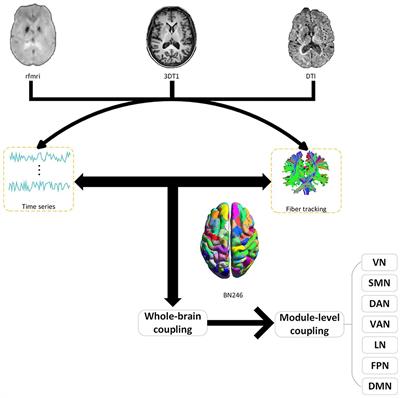ORIGINAL RESEARCH
Published on 29 Jul 2024
Association study of brain structure–function coupling and glymphatic system function in patients with mild cognitive impairment due to Alzheimer’s disease
doi 10.3389/fnins.2024.1417986
- 3,831 views
- 5 citations

